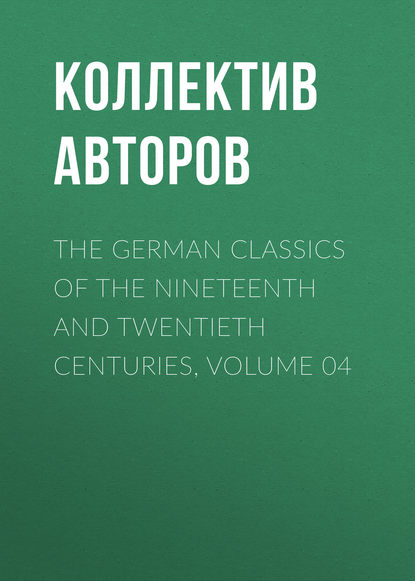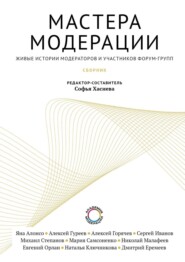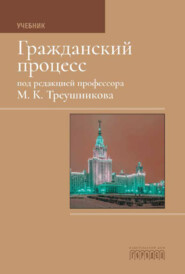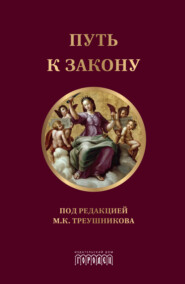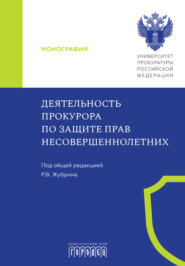По всем вопросам обращайтесь на: info@litportal.ru
(©) 2003-2024.
✖
The German Classics of the Nineteenth and Twentieth Centuries, Volume 04
Настройки чтения
Размер шрифта
Высота строк
Поля
Still worse and louder grew the business during dinner, when pastry-work and march-pane-devices were brought forward, when glasses, and slain fishes (laid under the napkins to frighten the guests) went round, and when the guests rose and themselves went round, and, at length, danced round: for they had instrumental music from the city there.
One minute handed over to the other the sugar-bowl and bottle-case of joy: the guests heard and saw less and less, and the villagers began to see and hear more and more, and toward night they penetrated like a wedge into the open door—nay, two youths ventured even in the middle of the parsonage-court to mount a plank over a beam and commence seesawing. Out of doors, the gleaming vapor of the departed sun was encircling the earth, the evening-star was glittering over parsonage and churchyard; no one heeded it.
However, about nine o'clock, when the marriage-guests had well nigh forgotten the marriage-pair, and were drinking or dancing along for their own behoof; when poor mortals, in this sunshine of Fate, like fishes in the sunshine of the sky, were leaping up from their wet cold element; and when the bridegroom under the star of happiness and love, casting like a comet its long train of radiance over all his heaven, had in secret pressed to his joy-filled breast his bride and his mother—then did he lock a slice of wedding-bread privily into a press, in the old superstitious belief that this residue secured continuance of bread for the whole marriage. As he returned, with greater love for the sole partner of his life, she herself met him with his mother, to deliver him in private the bridal-nightgown and bridal-shirt, as is the ancient usage. Many a countenance grows pale in violent emotions, even of joy. Thiennette's wax-face was bleaching still whiter under the sunbeams of Happiness. O, never fall, thou lily of Heaven, and may four springs instead of four seasons open and shut thy flower-bells to the sun! All the arms of his soul, as he floated on the sea of joy, were quivering to clasp the soft warm heart of his beloved, to encircle it gently and fast, and draw it to his own.
He led her from the crowded dancing-room into the cool evening. Why does the evening, does the night, put warmer love in our hearts? Is it the nightly pressure of helplessness or is it the exalting separation from the turmoil of life—that veiling of the world, in which for the soul nothing more remains but souls;—is it therefore that the letters in which the loved name stands written on our spirit appear, like phosphorus-writing, by night, in fire, while by day in their cloudy traces they but smoke?
He walked with his bride into the Castle garden: she hastened quickly through the Castle, and past its servants' hall, where the fair flowers of her young life had been crushed broad and dry, under a long dreary pressure; and her soul expanded and breathed in the free open garden, on whose flowery soil destiny had cast forth the first seeds of the blossoms which today were gladdening her existence. Still Eden! Green flower-chequered chiaroscuro! The moon is sleeping under ground like a dead one; but beyond the garden the sun's red evening-clouds have fallen down like rose-leaves; and the evening-star, the brideman of the sun, hovers, like a glancing butterfly, above the rosy red, and, modest as a bride, deprives no single starlet of its light.
The wandering pair arrived at the old gardener's hut, now standing locked and dumb, with dark windows in the light garden, like a fragment of the Past surviving in the Present. Bared twigs of trees were folding, with clammy half-formed leaves, over the thick intertwisted tangles of the bushes. The Spring was standing, like a conqueror, with Winter at his feet. In the blue pond, now bloodless, a dusky evening sky lay hollowed out, and the gushing waters were moistening the flower-beds. The silver sparks of stars were rising on the altar of the East, and, falling down, were extinguished in the red sea of the West.
The wind whirred, like a night-bird, louder through the trees, and gave tones to the acacia-grove; and the tones called to the pair who had first become happy within it: "Enter, new mortal pair, and think of what is past, and of my withering and your own; be holy as Eternity, and weep not only for joy, but for gratitude also!" And the wet-eyed bridegroom led his wet-eyed bride under the blossoms, and laid his soul, like a flower, on her heart, and said: "Best Thiennette, I am unspeakably happy, and would say much, but cannot! Ah, thou Dearest, we will live like angels, like children together! Surely I will do all that is good to thee; two years ago I had nothing, no, nothing; ah, it is through thee, best love, that I am happy. I call thee Thou, now, thou dear good soul!" She drew him closer to her, and said, though without kissing him: "Call me Thou always, Dearest!"
And as they stept forth again from the sacred grove into the magic-dusky garden, he took off his hat; first, that he might internally thank God, and, secondly, because he wished to look into this fairest evening sky.
They reached the blazing, rustling, marriage-house, but their softened hearts sought stillness; and a foreign touch, as in the blossoming vine, would have disturbed the flower-nuptials of their souls. They turned rather, and winded up into the churchyard to preserve their mood. Majestic on the groves and mountains stood the Night before man's heart, and made that also great. Over the white steeple-obelisk the sky rested bluer, and darker; and, behind it, wavered the withered summit of the May-pole with faded flag. The son noticed his father's grave, on which the wind was opening and shutting, with harsh noise, the little door of the metal cross, to let the year of his death be read on the brass plate within. As an overpowering sadness seized his heart with violent streams of tears, and drove him to the sunk hillock, he led his bride to the grave, and said: "Here sleeps he, my good father; in his thirty-second year he was carried hither to his long rest. O thou good, dear father, couldst thou today but see the happiness of thy son, like my mother! But thy eyes are empty, and thy breast is full of ashes, and thou seest us not." He was silent. The bride wept aloud; she saw the moldering coffins of her parents open, and the two dead arise and look round for their daughter, who had stayed so long behind them, forsaken on the earth. She fell upon his heart, and faltered: "O beloved, I have neither father nor mother. Do not forsake me!"
O thou who hast still a father and a mother, thank God for it, on the day when thy soul is full of joyful tears and needs a bosom whereon to shed them.
And with this embracing at a father's grave, let this day of joy be holily concluded.
ROME[2 - Permission Porter & Coates, Philadelphia.]
From Titan (1800)
By JEAN PAUL
TRANSLATED BY C. T. BROOKS
Half an hour after the earthquake the heavens swathed themselves in seas, and dashed them down in masses and in torrents. The naked Campagna and heath were covered with the mantle of rain. Gaspard was silent, the heavens black; the great thought stood alone in Albano that he was hastening on toward the bloody scaffold and the throne-scaffolding of humanity, the heart of a cold, dead heathen-world, the eternal Rome; and when he heard, on the Ponte Molle, that he was now going across the Tiber, then was it to him as if the past had risen from the dead, as if the stream of time ran backward and bore him with it; under the streams of heaven he heard the seven old mountain-streams, rushing and roaring, which once came down from Rome's hills, and, with seven arms, uphove the world from its foundations. At length the constellation of the mountain city of God, that stood so broad before him, opened out into distant nights; cities, with scattered lights, lay up and down, and the bells (which to his ear were alarm-bells) sounded out the fourth hour;[3 - Ten o'clock.] when the carriage rolled through the triumphal gate of the city, the Porta del Popolo, then the moon rent her black heavens, and poured down out of the cleft clouds the splendor of a whole sky. There stood the Egyptian Obelisk of the gateway, high as the clouds, in the night, and three streets ran gleaming apart. "So," (said Albano to himself, as they passed through the long Corso to the tenth ward) "thou art veritably in the camp of the God of war—here is where he grasped the hilt of the monstrous war-sword, and with the point made the three wounds in three quarters of the world!" Rain and splendor gushed through the vast, broad streets; occasionally he passed suddenly along by gardens, and into broad city-deserts and market-places of the past. The rolling of the carriages amidst the rush and roar of the rain resembled the thunder whose days were once holy to this heroic city, like the thundering heaven to the thundering earth; muffled-up forms, with little lights, stole through the dark streets; often there stood a long palace with colonnades in the light of the moon, often a solitary gray column, often a single high fir tree, or a statue behind cypresses. Once, when there was neither rain nor moonshine, the carriage went round the corner of a large house, on whose roof a tall, blooming virgin, with an uplooking child on her arm, herself directed a little hand-light, now toward a white statue, now toward the child, and so, alternately, illuminated each. This friendly group made its way to the very centre of his soul, now so highly exalted, and brought with it, to him, many a recollection; particularly was a Roman child to him a wholly new and mighty idea.
They alighted at last at the Prince di Lauria's—Gaspard's father-in-law and old friend. * * * Albano, dissatisfied with all, kept his inspiration sacrificing to the unearthly gods of the past round about him, after the old fashion, namely, with silence. Well might he and could he have discussed, but otherwise, namely in odes, with the whole man, with streams which mount and grow upward. He looked even more and more longingly out of the window at the moon in the pure rain-blue, and at single columns of the Forum; out of doors there gleamed for him the greatest world. At last he rose up, indignant and impatient, and stole down into the glimmering glory, and stepped before the Forum; but the moonlit night, that decoration-painter, which works with irregular strokes, made almost the very stage of the scene irrecognizable to him.
What a dreary, broad plain, loftily encompassed with ruins, gardens and temples, covered with prostrate capitals of columns, and with single, upright pillars, and with trees and a dumb wilderness! The heaped-up ashes out of the emptied urn of Time! And the potsherds of a great world flung around! He passed by three temple columns,[4 - Of Jupiter Tonans.] which the earth had drawn down into itself even to the breast, and along through the broad triumphal arch of Septimius Severus; on the right, stood a chain of columns without their temple; on the left, attached to a Christian church, the colonnade of an ancient heathen temple, deep sunken into the sediment of time; at last the triumphal arch of Titus, and before it, in the middle of the woody wilderness, a fountain gushing into a granite basin.
He went up to this fountain, in order to survey the plain out of which the thunder months of the earth once arose; but he went along as over a burnt-out sun, hung round with dark, dead earths. "O Man, O the dreams of Man!" something within him unceasingly cried. He stood on the granite margin, turning toward the Coliseum, whose mountain ridges of wall stood high in the moonlight, with the deep gaps which had been hewn in them by the scythe of Time. Sharply stood the rent and ragged arches of Nero's golden house close by, like murderous cutlasses. The Palatine Hill lay full of green gardens, and, in crumbling temple-roofs, the blooming death-garland of ivy was gnawing, and living ranunculi still glowed around sunken capitals. The fountain murmured babblingly and forever, and the stars gazed steadfastly down, with transitory rays, upon the still battlefield over which the winter of time had passed without bringing after it a spring; the fiery soul of the world had flown up, and the cold, crumbling giant lay around; torn asunder were the gigantic spokes of the main-wheel, which once the very stream of ages drove. And in addition to all this, the moon shed down her light like eating silver-water upon the naked columns, and would fain have dissolved the Coliseum and the temples and all into their own shadows!
Then Albano stretched out his arm into the air, as if he were giving an embrace and flowing away as in the arms of a stream, and exclaimed, "O ye mighty shades, ye, who once strove and lived here, ye are looking down from Heaven, but scornfully, not sadly, for your great fatherland has died and gone after you! Ah, had I, on the insignificant earth, full of old eternity which you have made great, only done one action worthy of you! Then were it sweet to me and legitimate to open my heart by a wound, and to mix earthly blood with the hallowed soil, and, out of the world of graves, to hasten away to you, eternal and immortal ones! But I am not worthy of it!"
At this moment there came suddenly along up the Via Sacra a tall man, deeply enveloped in a mantle, who drew near the fountain without looking round, threw down his hat, and held a coal-black, curly, almost perpendicular, hindhead under the stream of water. But hardly had he, turning upward, caught a glimpse of the profile of Albano, absorbed in his fancies, when he started up, all dripping, stared at the count, fell into an amazement, threw his arms high into the air, and said, "Amico!" Albano looked at him. The stranger said, "Albano!" "My Dian!" cried Albano; they clasped each other passionately and wept for love.
Dian could not comprehend it at all; he said in Italian: "But it surely cannot be you; you look old." He thought he was speaking German all the time, till he heard Albano answer in Italian. Both gave and received only questions. Albano found the architect merely browner, but there was the lightning of the eyes and every faculty in its old glory. With three words he related to him the journey, and who the company were. "How does Rome strike you?" asked Dian, pleasantly. "As life does," replied Albano, very seriously, "it makes me too soft and too hard." "I recognize here absolutely nothing at all," he continued; "do those columns belong to the magnificent temple of Peace?" "No," said Dian, "to the temple of Concord; of the other there stands yonder nothing but the vault." "Where is Saturn's temple?" asked Albano. "Buried in St. Adrian's church," said Dian, and added hastily: "Close by stand the ten columns of Antonine's temple; over beyond there the baths of Titus; behind us the Palatine hill; and so on. Now tell me—!"
They walked up and down the Forum, between the arches of Titus and Severus. Albano (being near the teacher who, in the days of childhood, had so often conducted him hitherward) was yet full of the stream which had swept over the world, and the all-covering water sunk but slowly. He went on and said: "Today, when he beheld the Obelisk, the soft, tender brightness of the moon had seemed to him eminently unbecoming for the giant city; he would rather have seen a sun blazing on its broad banner; but now the moon was the proper funeral-torch beside the dead Alexander, who, at a touch, collapses into a handful of dust." "The artist does not get far with feelings of this kind," said Dian, "he must look upon everlasting beauties on the right hand and on the left." "Where," Albano went on asking, "is the old lake of Curtius—the Rostrum—the pila Horatia—the temple of Vesta—of Venus, and of all those solitary columns?" "And where is the marble Forum itself?" said Dian; "it lies thirty span deep below our feet." "Where is the great, free people, the senate of kings, the voice of the orators, the procession to the Capitol? Buried under the mountain of potsherds! O Dian, how can a man who loses a father, a beloved, in Rome shed a single tear or look round him with consternation, when he comes out here before this battle-field of time and looks into the charnel-house of the nations? Dian, one would wish here an iron heart, for fate has an iron hand!"
Dian, who nowhere stayed more reluctantly than upon such tragic cliffs hanging over, as it were, into the sea of eternity, almost leaped off from them with a joke; like the Greeks, he blended dances with tragedy! "Many a thing is preserved here, friend!" said he; "in Adrian's church yonder they will still show you the bones of the three men that walked in the fire." "That is just the frightful play of destiny," replied Albano, "to occupy the heights of the mighty ancients with monks shorn down into slaves."
"The stream of time drives new wheels," said Dian "yonder lies Raphael twice buried.[5 - The body in the Pantheon, the head in Saint Luke's church.]" * * * And so they climbed silently and speedily over rubbish and torsos of columns, and neither gave heed to the mighty emotion of the other.
Rome, like the Creation, is an entire wonder, which gradually dismembers itself into new wonders, the Coliseum, the Pantheon, St. Peter's church, Raphael, etc.
With the passage through the church of St. Peter, the knight began the noble course through Immortality. The Princess let herself, by the tie of Art, be bound to the circle of the men. As Albano was more smitten with edifices than with any other work of man, so did he see from afar, with holy heart, the long mountain-chain of Art, which again bore upon itself hills, so did he stop before the plain, around which the enormous colonnades run like Corsos, bearing a people of statues. In the centre shoots up the Obelisk, and on its right and left an eternal fountain, and from the lofty steps the proud Church of the world, inwardly filled with churches, rearing upon itself a temple toward Heaven, looks down upon the earth. But how wonderfully, as they drew near, had its columns and its rocky wall mounted up and flown away from the vision!
He entered the magic church, which gave the world blessings, curses, kings and popes, with the consciousness, that, like the world-edifice, it was continually enlarging and receding more and more the longer one remained in it. They went up to two children of white marble who held an incense-muscle-shell of yellow marble; the children grew by nearness till they were giants. At length they stood at the main altar and its hundred perpetual lamps. What a place! Above them the heaven's arch of the dome, resting on four inner towers; around them an over-arched city of four streets in which stood churches. The temple became greatest by walking in it; and, when they passed round one column, there stood a new one before them, and holy giants gazed earnestly down.
Here was the youth's large heart, after so long a time, filled. "In no art," said he to his father, "is the soul so mightily possessed with the sublime as in architecture; in every other the giant stands within and in the depths of the soul, but here he stands out of and close before it." Dian, to whom all images were more clear than abstract ideas, said he was perfectly right. Fraischdörfer replied, "The sublime also here lies only in the brain, for the whole church stands, after all, in something greater, namely, in Rome, and under the heavens; in the presence of which latter we certainly should not feel anything." He also complained that "the place for the sublime in his head was very much narrowed by the innumerable volutes and monuments which the temple shut up therein at the same time with itself." Gaspard, taking everything in a large sense, remarked, "When the sublime once really appears, it then, by its very nature, absorbs and annihilates all little circumstantial ornaments." He adduced as evidence the tower of the Minster,[6 - Strassburg.] and Nature itself, which is not made smaller by its grasses and villages.
Among so many connoisseurs of art, the Princess enjoyed in silence.
The ascent of the dome Gaspard recommended to defer to a dry and cloudless day, in order that they might behold the queen of the world, Rome, upon and from the proper throne; he therefore proposed, very zealously, the visiting of the Pantheon, because he was eager to let this follow immediately after the impression of Saint Peter's church. They went thither. How simply and grandly the hall opens! Eight yellow columns sustain its brow, and majestically as the head of the Homeric Jupiter its temple arches itself. It is the Rotunda or Pantheon. "O the pigmies," cried Albano, "who would fain give us new temples! Raise the old ones higher out of the rubbish, and then you have built enough!"[7 - The hall of the Pantheon seems too low, because a part of its steps is hidden by the rubbish.] They stepped in. There rose round about them a holy, simple, free world-structure, with its heaven-arches soaring and striving upward, an Odeum of the tones of the Sphere-music, a world in the world! And overhead[8 - This opening in the roof is twenty-seven feet in diameter.] the eye-socket of the light and of the sky gleamed down, and the distant rack of clouds seemed to touch the lofty arch over which it shot along! And round about them stood nothing but the temple-bearers, the columns! The temple of all gods endured and concealed the diminutive altars of the later ones.
Gaspard questioned Albano about his impressions. He said he preferred the larger church of Saint Peter. The knight approved, and said that youth, like nations, always more easily found and better appreciated the sublime than the beautiful, and that the spirit of the young man ripened from strong to beautiful, as the body of the same ripens from the beautiful into the strong; however, he himself preferred the Pantheon. "How could the moderns," said the Counsellor of Arts, Fraischdörfer, "build anything, except some little Bernini-like turrets?" "That is why," said the offended Provincial Architect, Dian (who despised the Counsellor of Arts, because he never made a good figure except in the esthetic hall of judgment as critic, never in the exhibition-hall as painter), "we moderns are, without contradiction, stronger in criticism; though in practice we are, collectively and individually, blockheads." Bouverot remarked that the Corinthian columns might be higher. The Counsellor of Arts said that after all he knew nothing more like this fine hemisphere than a much smaller one, which he had found in Herculaneum molded in ashes, of the bosom of a fair fugitive. The knight laughed, and Albano turned away in disgust and went to the Princess.
He asked her for her opinion about the two temples. "Sophocles here, Shakespeare there; but I comprehend and appreciate Sophocles more easily," she replied, and looked with new eyes into his new countenance. For the supernatural illumination through the zenith of Heaven, not through a hazy horizon, transfigured, in her eyes, the beautiful and excited countenance of the youth; and she took for granted that the saintly halo of the dome must also exalt her form. When he answered her: "Very good! But in Shakespeare, Sophocles also is contained, not, however, Shakespeare in Sophocles—and upon Peter's Church stands Angelo's Rotunda!", just then the lofty cloud, all at once, as by the blow of a hand out of the ether, broke in two, and the ravished Sun, like the eye of a Venus floating through her ancient heavens—for she once stood even here—looked mildly in from the upper deep; then a holy radiance filled the temple, and burned on the porphyry of the pavement, and Albano looked around him in an ecstasy of wonder and delight, and said with low voice: "How transfigured at this moment is everything in this sacred place! Raphael's spirit comes forth from his grave in this noontide hour, and everything which its reflection touches brightens into godlike splendor!" The Princess looked upon him tenderly, and he lightly laid his hand upon hers, and said, as one vanquished, "Sophocles!"
On the next moonlit evening, Gaspard bespoke torches, in order that the Coliseum, with its giant-circle, might the first time stand in fire before them. The knight would fain have gone around alone with his son, dimly through the dim work, like two spirits of the olden time, but the Princess forced herself upon him, from a too lively wish to share with the noble youth his great moments, and perhaps, in fact, her heart and his own. Women do not sufficiently comprehend that an idea, when it fills and elevates man's mind, shuts it, then, against love, and crowds out persons; whereas with woman all ideas easily become human beings.
They passed over the Forum, by the Via Sacra, to the Coliseum, whose lofty, cloven forehead looked down pale under the moonlight. They stood before the gray rock-walls, which reared themselves on four colonnades one above another, and the torchlight shot up into the arches of the arcades, gilding the green shrubbery high overhead, and deep in the earth had the noble monster already buried his feet. They stepped in and ascended the mountain, full of fragments of rock, from one seat of the spectators to another. Gaspard did not venture to the sixth or highest, where the men used to stand, but Albano and the Princess did. Then the youth gazed down over the cliffs, upon the round, green crater of the burnt-out volcano, which once swallowed nine thousand beasts at once, and which quenched itself with human blood. The lurid glare of the torches penetrated into the clefts and caverns, and among the foliage of the ivy and laurel, and among the great shadows of the moon, which, like departed spirits, hovered in caverns. Toward the south, where the streams of centuries and barbarians had stormed in, stood single columns and bare arcades. Temples and three palaces had the giant fed and lined with his limbs, and still, with all his wounds, he looked out livingly into the world.
"What a people!" said Albano. "Here curled the giant snake five times about Christianity. Like a smile of scorn lies the moonlight down below there upon the green arena, where once stood the Colossus of the Sun-god. The star of the north[9 - The Pole-star, as well as other northern constellations, stands lower in the south.] glimmers low through the windows, and the Serpent and the Bear crouch. What a world has gone by!" The Princess answered that "twelve thousand prisoners built this theatre, and that a great many more had bled therein." "O! we too have building prisoners," said he, "but for fortifications; and blood, too, still flows, but with sweat! No, we have no present; the past, without it, must bring forth a future."
The Princess went to break a laurel-twig and pluck a blooming wall-flower. Albano sank away into musing: the autumnal wind of the past swept over the stubble. On this holy eminence he saw the constellations, Rome's green hills, the glimmering city, the Pyramid of Cestius; but all became Past, and on the twelve hills dwelt, as upon graves, the lofty old spirits, and looked sternly into the age, as if they were still its kings and judges.
"This to remember the place and time!" said the approaching Princess, handing him the laurel and the flower. "Thou mighty One! a Coliseum is thy flower-pot; to thee is nothing too great, and nothing too small!" said he, and threw the Princess into considerable confusion, till she observed that he meant not her, but nature. His whole being seemed newly and painfully moved, and, as it were, removed to a distance: he looked down after his father, and went to find him; he looked at him sharply, and spoke of nothing more this evening.
THE OPENING OF THE WILL
From the Flegeljahre (1804)
By JEAN PAUL
TRANSLATED BY FRANCES H. KING
Since Haslau had been a princely residence no one could remember any event—the birth of the heir apparent excepted—that had been awaited with such curiosity as the opening of the Van der Kabel will. Van der Kabel might have been called the Haslau Croesus—and his life described as a pleasure-making mint, or a washing of gold sand under a golden rain, or in whatever other terms wit could devise. Now, seven distant living relatives of seven distant deceased relatives of Kabel were cherishing some hope of a legacy, because the Croesus had sworn to remember them. These hopes, however, were very faint. No one was especially inclined to trust him, as he not only conducted himself on all occasions in a gruffly moral and unselfish manner—in regard to morality, to be sure, the seven relatives were still beginners—but likewise treated everything so derisively and possessed a heart so full of tricks and surprises that there was no dependence to be placed upon him. The eternal smile hovering around his temples and thick lips, and the mocking falsetto voice, impaired the good impression that might otherwise have been made by his nobly cut face and a pair of large hands, from which New Year's presents, benefit performances, and gratuities were continually falling. Wherefore the birds of passage proclaimed the man, this human mountain-ash in which they nested and of whose berries they ate, to be in reality a dangerous trap; and they seemed hardly able to see the visible berries for the invisible snares.
Between two attacks of apoplexy he made his will and deposited it with the magistrate. Though half dead when, he gave over the certificate to the seven presumptive heirs he said in his old tone of voice that he did not wish this token of his decease to cause dejection to mature men whom he would much rather think of as laughing than as weeping heirs. And only one of them, the coldly ironical Police-Inspector Harprecht, answered the smilingly ironical Croesus: "It was not in their power to determine the extent of their collective sympathy in such a loss."
At last the seven heirs appeared with their certificate at the city hall. These were the Consistorial Councilor Glanz, the Police Inspector, the Court-Agent Neupeter, the Attorney of the Royal Treasury Knol, the Bookseller Passvogel, the Preacher-at-Early-Service Flachs, and Herr Flitte from Alsace. They duly and properly requested of the magistrates the charter consigned to the latter by the late Kabel, and asked for the opening of the will. The chief executor of the will was the officiating Burgomaster in person, the under-executors were the Municipal-Councilors. Presently the charter and the will were fetched from the Council-chamber into the Burgomaster's office, they were passed around to all the Councilors and the heirs, in order that they might see the privy seal of the city upon them, and the registry of the consignment written by the town clerk upon the charter was read aloud to the seven heirs. Thereby it was made known to them that the charter had really been consigned to the magistrates by the late departed one and confided to them scrinio rei publicæ, likewise that he had been in his right mind on the day of the consignment. The seven seals which he himself had placed upon it were found to be intact. Then—after the Town-Clerk had again drawn up a short record of all this—the will was opened in God's name and read aloud by the officiating Burgomaster. It ran as follows:
"I, Van der Kabel, do draw up my will on this seventh day of May 179-, here in my house in Haslau, in Dog Street, without a great ado of words, although I have been both a German notary and a Dutch dominé. Notwithstanding, I believe that I am still sufficiently familiar with the notary's art to be able to act as a regular testator and bequeather of property.
"Testators are supposed to commence by setting forth the motives which have caused them to make their will. These with me, as with most, are my approaching death, and the disposal of an inheritance which is desired by many. To talk about the funeral and such matters is too weak and silly. That which remains of me, however, may the eternal sun above us make use of for one of his verdant springs, not for a gloomy winter!
"The charitable bequests, about which notaries must always inquire, I shall attend to by setting aside for three thousand of the city's paupers an equal number of florins so that in the years to come, on the anniversary of my death, if the annual review of the troops does not happen to take place on the common that day, they can pitch their camp there and have a merry feast off the money, and afterward clothe themselves with the tent linen. To all the schoolmasters of our Principality also I bequeath to every man one august d'or, and I leave my pew in the Court church to the Jews of the city. My will being divided into clauses, this may be taken as the first.
"SECOND CLAUSE
It is the general custom for legacies and disinheritances to be counted among the most essential parts of the will. In accordance with this custom Consistorial Councillor Glanz, Attorney of the Royal Treasury Knol, Court-Agent Peter Neupeter, Police-Inspector Harprecht, the Preacher-at-Early-Service Flachs, the Court-bookseller Passvogel and Herr Flitte, for the time being receive nothing; not so much because no Trebellianica is due them as the most distant relatives, or because most of them have themselves enough to bequeath, as because I know out of their own mouths that they love my insignificant person better than my great wealth, which person I therefore leave them, little as can be got out of it."





